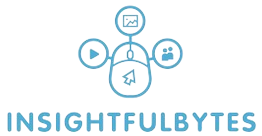The Digital Revolution in Local Business Discovery
In today’s hyper-connected world, the intersection of public web data and local search engine optimization has created unprecedented opportunities for businesses to enhance their digital presence. Local SEO, once a simple matter of listing your business in yellow pages, has evolved into a sophisticated ecosystem where publicly available information serves as the foundation for search engine algorithms and consumer decision-making processes.
The transformation of how consumers discover local businesses represents a fundamental shift in marketing dynamics. Modern searchers rely heavily on digital touchpoints, reviews, and data-driven insights before making purchasing decisions. This behavioral change has elevated the importance of public web data as a critical component in local SEO strategies.
Understanding Public Web Data in the Local SEO Context
Public web data encompasses a vast array of information that businesses can legally access and analyze to improve their local search performance. This includes business listings, customer reviews, social media mentions, competitor analysis data, local event information, and demographic insights. The accessibility of this information has democratized marketing intelligence, allowing small local businesses to compete with larger enterprises on a more level playing field.
Search engines like Google continuously crawl and index this public information, using sophisticated algorithms to determine local search rankings. Understanding how to leverage this data effectively can significantly impact a business’s visibility in local search results, ultimately driving more qualified traffic and conversions.
The Mechanics of Data Integration in Search Algorithms
Search engines employ complex systems to process and interpret public web data for local search results. These systems analyze consistency across multiple data sources, evaluate the quality and relevance of information, and assess user engagement signals to determine ranking positions. Businesses that understand these mechanisms can strategically position themselves to benefit from algorithmic preferences.
The integration process involves multiple data verification steps, where search engines cross-reference information from various public sources to establish credibility and accuracy. This verification system rewards businesses that maintain consistent and accurate information across all public platforms.
Strategic Applications of Public Web Data for Local SEO
Competitor Intelligence and Market Analysis
One of the most powerful applications of public web data lies in competitive intelligence gathering. Local businesses can analyze competitor listings, review patterns, pricing strategies, and marketing approaches using publicly available information. This intelligence enables businesses to identify market gaps, optimize their service offerings, and develop more effective positioning strategies.
Market analysis through public data provides insights into local consumer preferences, seasonal trends, and emerging opportunities. Businesses can track competitor performance metrics, monitor their review acquisition rates, and analyze their content strategies to inform their own SEO approaches.
Review Management and Reputation Enhancement
Public review data serves as a goldmine for local SEO optimization. Beyond simply monitoring reviews, businesses can analyze review patterns across competitors, identify common customer pain points, and develop targeted improvement strategies. This data-driven approach to reputation management often yields better results than reactive review responses.
The analysis of public review data also reveals valuable keyword insights, as customers naturally use local terminology and specific phrases when describing their experiences. These insights can inform content creation and local keyword optimization strategies.
Technical Implementation Strategies
Data Aggregation and Normalization
Successful implementation of public web data strategies requires systematic data aggregation and normalization processes. Businesses must collect information from multiple sources, standardize formatting, and establish consistent monitoring protocols. This technical foundation ensures that data-driven insights translate into actionable SEO improvements.
Normalization processes help identify discrepancies in business information across different platforms, enabling businesses to correct inconsistencies that might negatively impact their local search performance. This attention to detail often distinguishes successful local SEO campaigns from mediocre ones.
Automated Monitoring and Alert Systems
The volume of public web data requires automated systems for effective monitoring and analysis. Businesses can implement alert systems that notify them of new reviews, mentions, or significant changes in competitor activities. These systems enable rapid response to opportunities and threats in the local market.
Automation also facilitates regular auditing of business information across multiple platforms, ensuring that any changes or updates are promptly reflected across all relevant directories and listing sites.
Emerging Trends and Future Opportunities
Artificial Intelligence and Machine Learning Integration
The integration of AI and machine learning technologies with public web data analysis is creating new opportunities for local SEO optimization. These technologies can identify patterns and correlations that human analysts might miss, providing deeper insights into local market dynamics and consumer behavior.
Predictive analytics based on public data trends can help businesses anticipate market changes, seasonal fluctuations, and emerging opportunities. This forward-looking approach enables proactive SEO strategies rather than reactive responses.
Voice Search and Local Intent Optimization
The rise of voice search has increased the importance of understanding local intent patterns in public data. Voice queries often contain more natural language and specific local references, creating new opportunities for businesses to optimize their content and listings for voice search results.
Analysis of voice search patterns in public data reveals how consumers actually phrase their local queries, providing valuable insights for content optimization and local keyword targeting strategies.
Practical Tools and Resources
Data Collection and Analysis Platforms
Several specialized platforms facilitate the collection and analysis of public web data for local SEO purposes. These tools range from comprehensive business intelligence platforms to specialized local SEO monitoring services. The key is selecting tools that align with specific business objectives and technical capabilities.
Many of these platforms offer API access, enabling businesses to integrate public data insights directly into their existing marketing workflows and decision-making processes.
Best Practices for Data Privacy and Compliance
While public web data is legally accessible, businesses must maintain ethical standards and comply with relevant privacy regulations. This includes respecting robots.txt files, adhering to platform terms of service, and ensuring that data collection practices align with industry best practices.
Compliance considerations also extend to data storage and usage policies, particularly when dealing with customer information or competitive intelligence. Establishing clear guidelines and protocols helps businesses leverage public data effectively while maintaining ethical standards.
Measuring Success and ROI
Key Performance Indicators
The effectiveness of public web data strategies in local SEO can be measured through various key performance indicators. These include improvements in local search rankings, increases in website traffic from local searches, growth in review acquisition rates, and enhanced online reputation scores.
Advanced analytics can also track the correlation between data-driven optimizations and business outcomes, such as increased foot traffic, phone calls, and conversions. This comprehensive measurement approach helps businesses understand the true impact of their public data strategies.
Long-term Strategic Planning
Successful integration of public web data into local SEO strategies requires long-term planning and continuous optimization. Businesses must establish regular review cycles, update their data collection methodologies, and adapt their strategies based on changing market conditions and algorithm updates.
The dynamic nature of public web data means that strategies must evolve continuously to remain effective. This ongoing optimization process often becomes a competitive advantage for businesses that commit to systematic data-driven approaches.
Conclusion: Embracing Data-Driven Local SEO
The strategic utilization of public web data represents a fundamental shift in how local businesses approach SEO and digital marketing. By embracing these data-driven methodologies, businesses can achieve more precise targeting, better understand their local markets, and develop more effective optimization strategies.
Success in this data-rich environment requires a combination of technical expertise, strategic thinking, and continuous adaptation. Businesses that invest in developing these capabilities position themselves for sustained growth and competitive advantage in their local markets.
The future of local SEO will undoubtedly become even more data-centric, making current investments in public data strategies essential for long-term success. As search engines continue to refine their algorithms and consumers become increasingly sophisticated in their search behaviors, the businesses that master the art and science of public web data utilization will emerge as the clear winners in local search results.

